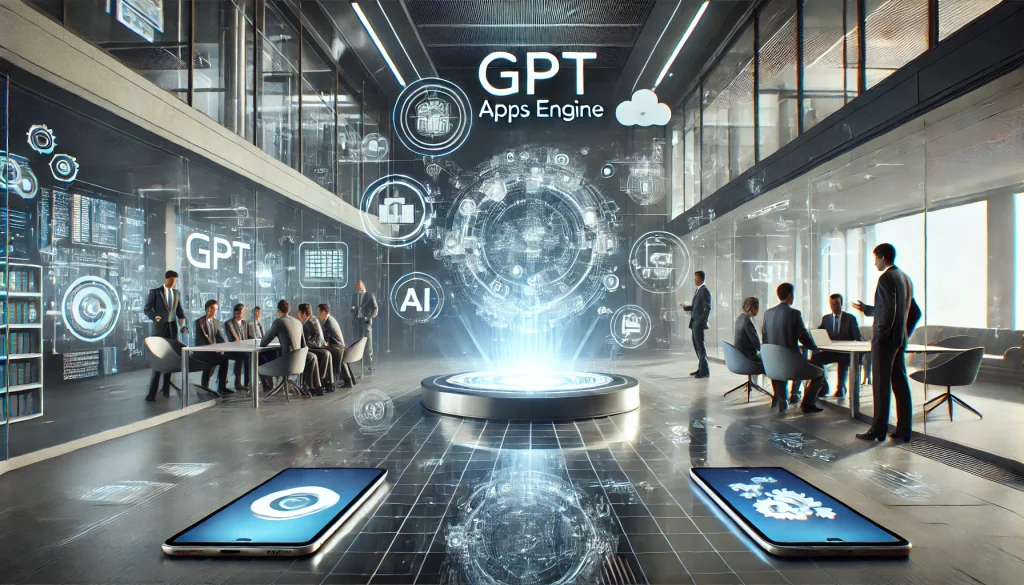20 Best Practices for GPT Apps Engine Commercial Success

Whether you’re developing, marketing, or monetizing apps powered by GPT (Generative Pre-trained Transformer) technology, following best practices ensures success in this competitive space.
Here are the 20 most essential strategies to maximize the potential of your GPT Apps Engine:
1. Understand User Needs Thoroughly
- Perform market research to identify specific user problems your app can solve with GPT capabilities.
- Focus on use cases like customer service, content creation, or personalized recommendations.
2. Prioritize Accuracy in Outputs
- Train GPT models on high-quality, domain-specific data to ensure reliable and relevant outputs.
- Use feedback loops to refine and correct model responses continuously.
3. Optimize the User Interface (UI)
- Ensure intuitive navigation for users to interact seamlessly with GPT features.
- Include clear instructions or examples to guide users.
4. Integrate Personalization
- Use GPT’s adaptability to tailor responses based on individual user preferences or history.
- Store and leverage user data securely for a customized experience.
5. Provide Transparency
- Inform users when interacting with AI, explaining its role and limitations.
- Clearly disclose data collection and usage policies.

6. Incorporate Multi-Language Support
- Expand accessibility by enabling GPT to handle diverse languages and dialects.
- Include localization to adapt culturally relevant nuances in responses.
7. Maintain Ethical AI Practices
- Prevent GPT from generating harmful, biased, or inappropriate content through stringent moderation.
- Implement clear guidelines for developers and users to uphold ethical standards.
8. Ensure Robust Security
- Protect sensitive user data with encryption and strict access controls.
- Regularly update and audit security measures to prevent vulnerabilities.
9. Regularly Update Models
- Retrain GPT models with fresh data to stay current with evolving trends and terminology.
- Use versioning to roll out updates seamlessly.
10. Monitor Performance Metrics
- Track metrics like response accuracy, user satisfaction, and engagement rates.
- Use analytics to identify areas for improvement.
11. Foster Scalability
- Design your app infrastructure to handle increasing user demand without performance degradation.
- Use cloud-based solutions to expand server capabilities as needed.
12. Leverage Prebuilt APIs
- Save development time by integrating GPT APIs from trusted providers like OpenAI or competitors.
- Customize API use to align with your app’s unique needs.
13. Offer Offline Capabilities
- Create limited functionality for scenarios where users lack internet access.
- Cache frequently used features or datasets locally.
14. Implement Fail-Safes
- Program fallback responses for GPT when it fails to generate accurate or meaningful answers.
- Use human-in-the-loop systems for critical functions.
15. Simplify Monetization Strategies
- Adopt straightforward pricing models like subscription tiers, pay-per-use, or freemium plans.
- Regularly test and refine monetization strategies based on user feedback.
16. Enhance Speed and Latency
- Optimize model inference time to deliver faster responses.
- Use regional servers to minimize latency for global users.
17. Educate Users on GPT’s Capabilities
- Provide tutorials, FAQs, and demo videos to demonstrate the app’s full potential.
- Highlight use cases that resonate with your target audience.
18. Focus on Cross-Platform Accessibility
- Develop GPT apps that function seamlessly on web, mobile, and desktop platforms.
- Use responsive design principles to adapt the UI for different devices.

19. Build a Feedback Mechanism
- Allow users to rate responses and suggest improvements.
- Actively use feedback to enhance GPT accuracy and app usability.
20. Create Community Engagement
- Foster a user community through forums, webinars, and events to encourage adoption and retention.
- Highlight success stories and feature user-generated content.
Conclusion
By adhering to these 20 best practices, businesses and developers can unlock the full potential of GPT Apps Engine in commercial applications. From delivering ethical, accurate outputs to scaling for global audiences, a thoughtful approach to GPT integration ensures sustained success in this rapidly evolving field.
